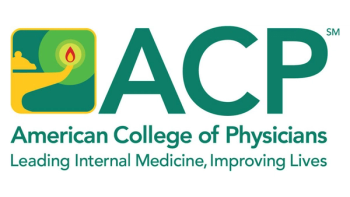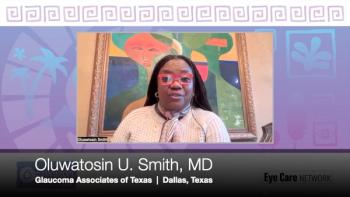
In defense of Sen. Rand Paul
In his debut blog, Zack Oakey, MD, defends Sen. Rand Paul's actions against the American Board of Ophthalmology, and challenges his colleagues to do the same.
Editor’s Note: Ophthalmology Times introduces “Eye Catching: Let's Chat,” a blog series featuring contributions from members of the ophthalmic community. These blogs will be an opportunity for ophthalmic bloggers to engage with readers with about a topic that is top of mind, whether it is practice management, experiences with patients, the industry, medicine in general, or healthcare reform. The series continues with this blog by Zack Oakey, MD, an ophthalmology resident at the University of California, Irvine. The viewpoints expressed in these blogs do not represent the viewpoints of Ophthalmology Times and UBM Advanstar.
When the idea of
One of my eventual mentors said something I still remember: “When interviewing, don’t ruffle feathers; ophthalmologists are careful people who don’t want controversy.”
I now believe in this observation from my own interactions. I’ve found that many traditions and conservative ways of thinking are preserved in the subspecialty more so than other surgical subspecialties. Withholding the expression of deeper and controversial thoughts and management plans has served me well.
What’s more, we seem to be the only game in town where, for example, superior alternating hemiplegia is known by its eponym (Weber’s Syndrome)-sometimes to the derision of our neurology colleagues.
We are most likely to believe that burnout results from bureaucratic tasks1, arguably a conservative notion contrary to the progressive ideas surrounding electronic medical records.
In my personal experience, I have heard and seen that we seem to be the last in adopting changes in medical documentation. I’ve been in clinics where the Haag-Streit slit lamp dates back to the 1960s and the whole clinic note is an alphabet soup of “PDR d/t NIDDMII,” etc.
Tying in Sen. Rand Paul
In short,
He felt it was an “injustice” and that “the establishment” needed to hear a “clear message” that they would lose members, and their dues, if they did not treat all of their members equally.
Sen. Paul established the National Board of Ophthalmology (NBO) as an alternative to allow agreeing ophthalmologists to send this “clear message” and to make what he felt is a more rational process for attestation.2
This is not the first time a national, certifying organization has been confronted with organized opposition.
As recently as this year, the American Board of Internal Medicine (ABIM)-an organization that continues to certify about 200,000 physicians4-has received a great deal of push back from San Diego cardiologist, Paul Teirstein, MD.
Met with the demands and inconsistencies of Maintenance of Certification (MOC), Dr. Teirstein contacted his group of interconnected cardiologists and asked his interventional cardiology fellows to organize a petition to change the way the certification process is mediated.
Among Dr. Teirstein’s complaints are the price of MOC, its clinical relevance, and the general manner in which the ABIM could not mount a sufficient response to what he saw as an obvious issue.
In other forums, he points out the dearth of evidence supporting the measures in place to certify physicians and notes that there is a significant financial conflict of interest in maintaining the offices of certifying organizations.5
Dr. Teirstein raised significant support, garnering more than 10,000 signatures within a short period and has started a conversation loud enough that the ABIM has responded.
Less than a month ago Richard Baron, MD, president of ABIM, contacted his diplomats to inform them they would make some changes to MOC and planned other unspecified changes.
This was not satisfactory to Dr. Teirstein, who had already established and named himself president of the National Board of Physicians and Surgeons (NBPS). He has already implemented policies with NBPS and described in popular print the “Paulian” ethos of monopoly, freedom, etc.
Risky and bold MDs
What these California MDs did was undoubtedly bold and risky. Behind the scenes there was probably a significant degree of ugliness in the development of NBPS.
But that probably doesn’t matter to cardiologists interested in reasonable MOC, since it would seem as though they are more interested in substance.
Perhaps these behaviors are more typical of the personality selected in the cardiology subspecialty. I found in my year of medicine/medical school, that those destined for the cath lab were disproportionately self-governing and more interested in content.
Given the cardiology/ABIM context, the ease with which physicians agreed and trusted one another, as well as their preference for substance, I find ophthalmology’s response to Sen. Paul’s efforts to establish a competing organization dissatisfying.
The ABO has a clear advantage in offering the public a standardized approach, and any pre-existing monopoly tends to have a clean-shaven face and a more-polished reputation.
Sen. Paul’s NBO was dysfunctional and poorly orchestrated. His family-mostly holders of a bachelors degree and sometimes unaware of their status in the organization-made up the board of directors. He wasn’t able to adequately represent or fully supply the criteria for his certification, and some have described the test as “open book.”
The NBO ultimately failed and was not recognized by any state organization, including Kentucky where certification is not required to practice ophthalmology.
But does it really matter?
Why does this matter so much to ophthalmologists? Perhaps the NBO’s failure had a lot to do with the fact that Sen. Paul, who was an ABO member from 1995 until 2005, was an excellent surgeon according to his politically oppositely minded colleagues.2 I can’t imagine running a private practice and organizing something like a medical board.
What I mostly object to is the tones in which Sen. Paul’s efforts are addressed.
I dislike that cardiologists are able to recognize a problem with their certification and organize around an obvious monopoly, whereas ophthalmologists fall apart like oil in water at the thought of contradicting the prevailing notion of established attestation. Intimated in our discussions around Rand Paul, is the idea that he was somehow less qualified or was liable to dodging certification.
The fact that he received ABO certification and that he and the ABO agreed, to some extent, that an ophthalmologist doesn’t even need MOC should be adequate reason to call that idea into question.
Besides, have you ever interviewed at Duke? Sen. Paul was accepted to its medical school without a bachelor’s degree and he completed residency there.
Ignoring his political ideology for a moment, ask yourself: What kind of person, other than someone who is obviously gifted, would match at a top residency, start his own private practice, start his own certification organization, run and win a seat in the Senate, become a libertarian icon and the new face of the Republican Party, and also avoid ABO certification on the basis of ability?
If we value consistency and honesty, we ought to find a more parsimonious explanation for the NBO/Rand Paul situation. He is a person who is consistent in his political ideology and will implement its natural implications regarding monopoly in his chosen profession. I honestly see nothing wrong with his history at NBO.
Good for him if he can show the flaws of the ABO, perhaps mend its paths, and make it a more equitable organization by utilizing the only mechanism available to combat monopoly: competition.
Resources
1. Physician Lifestyle Report 2015, Medscape, WedMD LLC
2. “How Rand Paul tried…”
3. ABIM
4. Signatures
5. Teirstein print
Newsletter
Don’t miss out—get Ophthalmology Times updates on the latest clinical advancements and expert interviews, straight to your inbox.





























